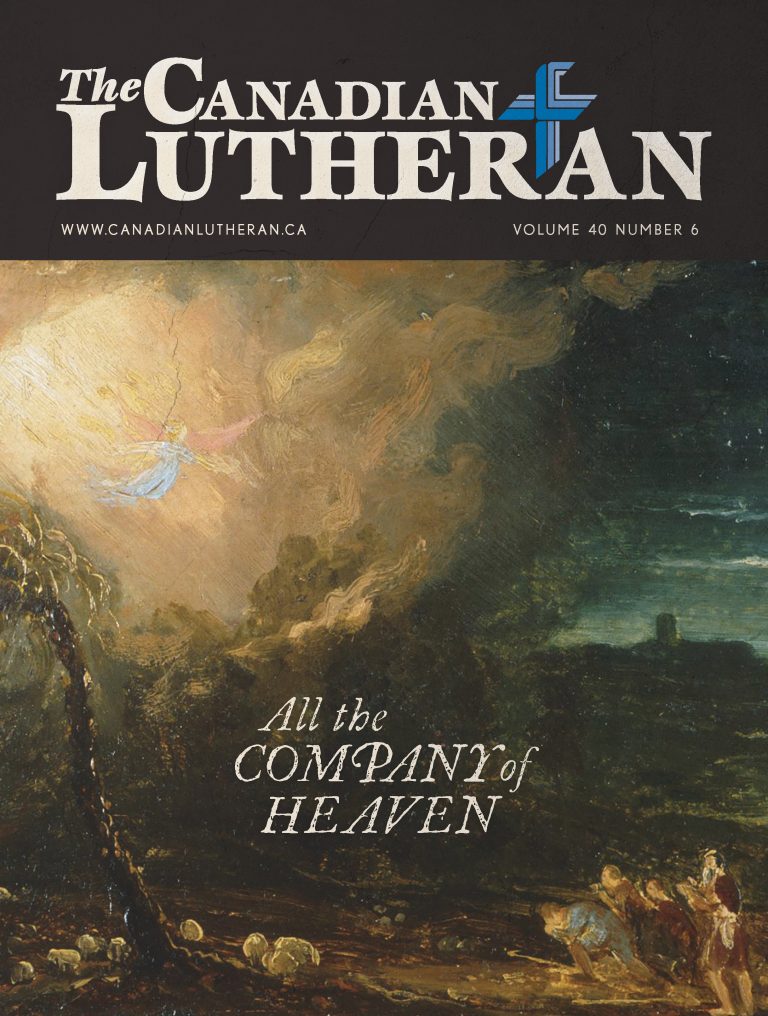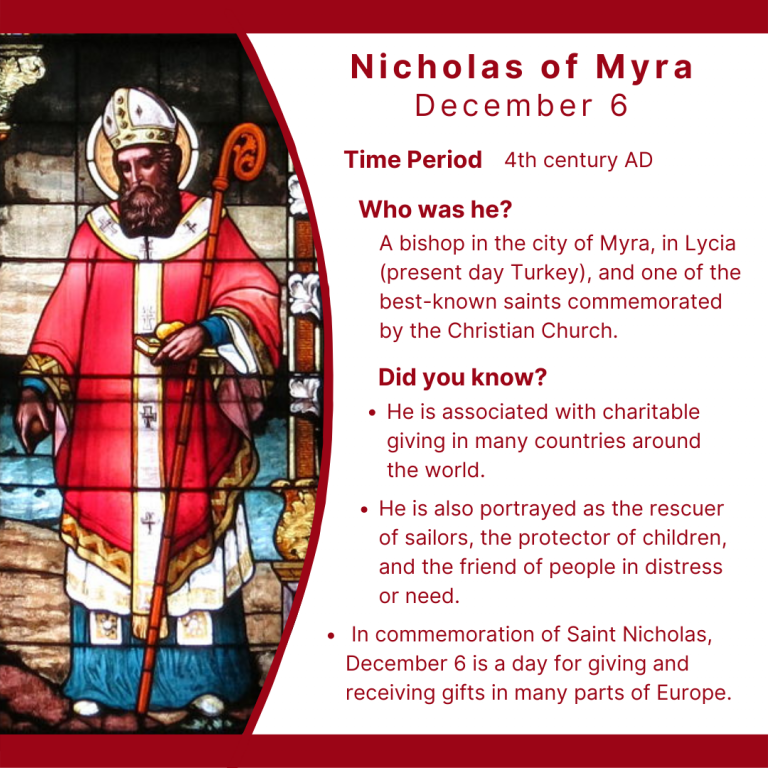Opportunity in an Online Age
 by Jonathan Kraemer
by Jonathan Kraemer
In the spring of 2020, the World Health Organization declared COVID-19 to be a pandemic. As countries locked down, churches scrambled to provide the Word of God for their parishioners in order to sustain their faith in the face of the crisis. Recent technological developments allowed churches to move online quickly with as little as a cell phone and a Facebook or YouTube account. Suddenly, almost overnight, video sharing services and social media were flooded with faithful Lutheran content—from devotions to Bible studies to sermons to whole worship services. The Canadian Lutheran covered the story of that mass adoption of technology in the March/April 2020 article, “LCC Congregations Reach Out: Online Ministry During the COVID-19 Crisis.”
While this may have been surprising, history shows that Christians have often made use of the most recent technology to spread and uphold the Word of God. As they have done so, they have had to grapple with the implications of that technology. The church has had to learn how to capitalize on the benefits of new inventions, while at the same time mitigating their negative aspects.
NEW TECHNOLOGY & THE CHURCH
Believe it or not, the book or “codex” (the technical term) is the first real technological innovation Christians made use of in the early years of the church. Before that, the scroll was used to record God’s Word for worship and study. Christians, though, preferred the codex. It had been around for some time, but was used more for private notebooks than for works of literature.
The pouring out of the Gospel over the internet has been a blessing for many kinds of listeners. In addition to blessings for regular churchgoers, it has been especially beneficial for those who are confined to their homes or in care facilities. Shift workers and those in remote locations are also being blessed with new opportunities to be fed by the Word of God.
Christians used the codex to record the Holy Scriptures for a number of reasons that might seem obvious to us. It was cost effective because it was less expensive than the scroll and could fit books of the Bible together in one package. The codex was also advantageous for study and cross referencing; all it took was the flip of a few pages to compare passages instead of rolling and unrolling a scroll. Not only that, but codices are compact and easily portable—something that would have been important for missionary journeys.
After the codex, another significant technological advancement was the printing press with movable type. It has been given credit for the speed at which the Reformation was able to spread. Johannes Gutenberg developed it in the mid 1400s so it was a relatively new invention at the time Martin Luther’s writings were being published. More time-efficient and cost-effective than hand-copied texts, printed tracts and books accelerated the spread of ideas. Coupled with writing in the peoples’ language, the printing press enabled everyone to be informed not only of God’s Word but also the doctrinal controversies between the church in Rome and Luther. They could read works like the 95 Theses for themselves and be directly convinced by Luther of the truth he was proclaiming.
The story is similar with regard to radio broadcasting. Although civilian radio programs just began to be broadcasted in the early 1920s, the Board of Control of Concordia Seminary (St. Louis, Missouri) quickly founded the radio station KFUO, and began broadcasting December 14, 1924 with the support of the Lutheran Laymen’s League. The Lutheran Hour began “bringing Christ to the nations” during its first broadcast on October 2, 1930. It has since been carried throughout the world and remains to this day the world’s longest running Gospel radio program.
When we consider the codex, the printing press, and the radio, we see that the church has regularly made use of the best technology available in order to put the Word of God into people’s hands and ears as they proclaimed it broadly.
GROWING PAINS
While there are many blessings afforded by new technologies, there are also limitations and downsides. The printing press allowed Martin Luther’s teachings to spread quickly to many people, but it also allowed other not-so- orthodox teachings to circulate. Readers were increasingly faced with the challenge of identifying for themselves what would be edifying for their faith and what would not—a challenge that exists to this day. Pastors had to increasingly identify faithful writings for their flock and to combat false doctrine that was circulating in print.
That Word is worth all the effort needed to broadcast it because, as Luther says in the Large Catechism, “The Word is so effective that whenever it is seriously contemplated, heard, and used, it is bound never to be without fruit.”
Radio broadcasts of the Gospel to millions of people unknown also had their limitations to work through (as did later broadcasts on television). One of the limitations was that of the anonymous listener. Some listeners were already believers, who would be strengthened in their faith through the program. Others would hear the Word for the first time and so come to believe in Christ. But new believers could not be baptized over the airwaves; they needed to be connected to a pastor and a church. The Lutheran Hour had to find a way to encourage those listeners to identify themselves so they could make the connection. In 1993, an addition to the mission statement of The Lutheran Hour was made in recognition of what they had already been doing for years. Now the mission statement read: “Bringing Christ to the nations and the nations to the church.”
SHARING THE WORD ONLINE
From this historical perspective on the adoption of new technology by the church, we can better understand why we have begun working in the new medium of online worship, especially at this time of crisis. We also won’t be surprised to experience growing pains as we work through the limitations and negative aspects of this new approach.
For many parishioners and congregations, the shift to offering more internet-mediated services has been a blessing. Luther’s explanations of the Third Commandment in the catechisms express it best. Online worship has enabled people to hold preaching and God’s Word as sacred and to gladly hear and learn it (to paraphrase the Small Catechism), even if they have not been able to gather in one place geographically. That Word is worth all the effort needed to broadcast it because, as Luther says in the Large Catechism, “The Word is so effective that whenever it is seriously contemplated, heard, and used, it is bound never to be without fruit. It always awakens new understanding, pleasure, and devoutness and produces a pure heart and pure thoughts. For these words are not lazy or dead, but are creative, living words.” Whether one gathers around the Word live and in-person or broadcast over the internet, the grace that God gives through that Word is effective and powerful. As we often remind ourselves, “faith comes from hearing, and hearing through the word of Christ.” (Romans 10:17).
From this historical perspective on the adoption of new technology by the church, we can better understand why we have begun working in the new medium of online worship, especially at this time of crisis.
The pouring out of the Gospel over the internet has been a blessing for many kinds of listeners. In addition to blessings for regular churchgoers, it has been especially beneficial for those who are confined to their homes or in care facilities. Shift workers and those in remote locations are also being blessed with new opportunities to be fed by the Word of God.
Since God creates and sustains faith through the Gospel, its proclamation to the world online creates new opportunities to reach out to others. Parishioners are able to invite friends to church with the click of a mouse. Some people who may be curious about a local congregation can watch a service online, even if they might not normally walk through the doors of a church for service. Members and friends of the congregation who have not attended in a long time are able to reconnect.
Of course, despite all these blessings, sharing the Word of God digitally does pose challenges as well. The benefits and the downsides are well articulated in the January/February 2020 edition of The Canadian Lutheran in the article, “Online Churches, Robot Priests.” Perhaps the greatest deficiency of sharing worship online is that one cannot physically gather together to hear God’s Word and to celebrate the sacraments. In this time, many people have been left longing to receive the Lord’s Supper, because it cannot be transmitted over the internet. Many also long to be together again with all their church family in worship. When vaccines are distributed and restrictions are over, there will be a great reunion of church families around the table of our Lord.
Another challenge of online outreach is similar to that which faced radio broadcasts: the anonymous listener. Although the number of views of a live-stream or recording can be tabulated, the listener is anonymous unless they “like” a video or make a comment. It can be impossible to know how many of the attendees are congregational members and how many are visitors. This makes follow-up and pastoral care difficult. Like The Lutheran Hour, congregations will need to learn how to encourage people to identify themselves. Perhaps online greeters or the pastor can welcome those attending and encourage them to greet one another in the comment section. They can also invite listeners to get in touch with the congregation to learn more. Online attendees could be sent devotional booklets after identifying themselves. There are many creative ways to mitigate the problem of the anonymous listener, but we have to be aware of the challenge before we can address it.
These and other growing pains, as well as blessings, will no doubt continue to be identified. Even beyond the pandemic, congregations will need to make decisions about how to make the best use of contemporary technology, working to mitigate the challenges that exist while identifying new opportunities to share the powerful and enduring Word of God.
———————
Rev. Jonathan Kraemer is pastor of All Saints Lutheran Church in Edmonton.



